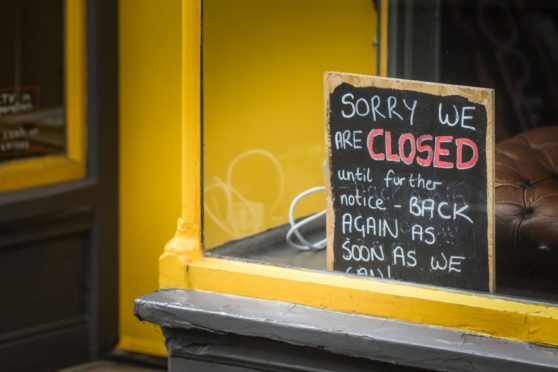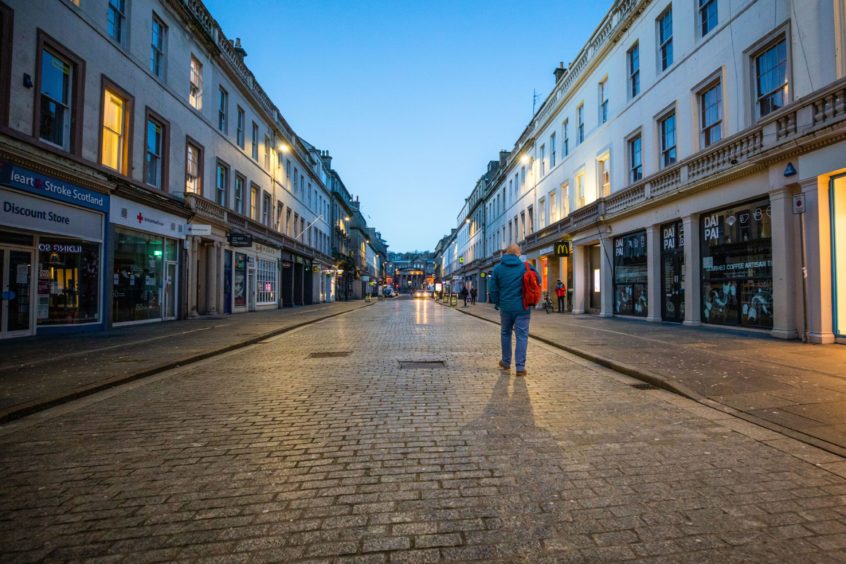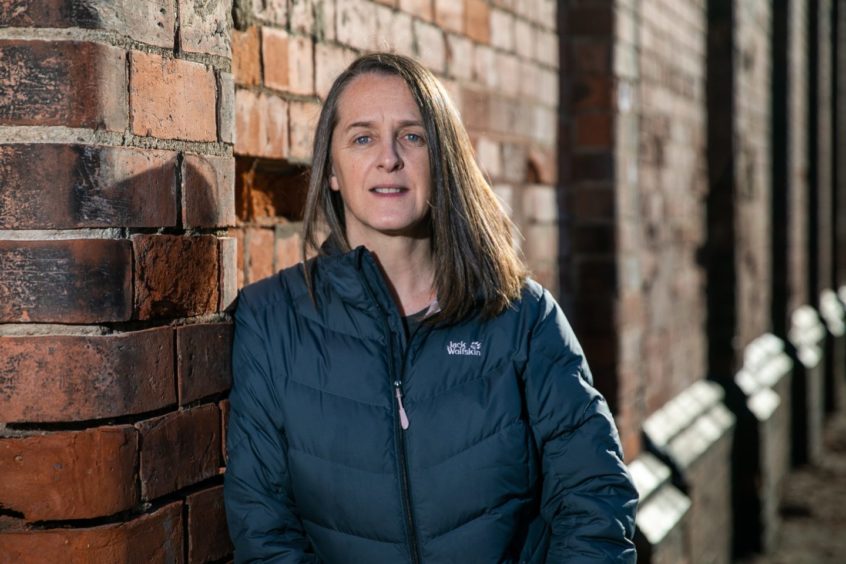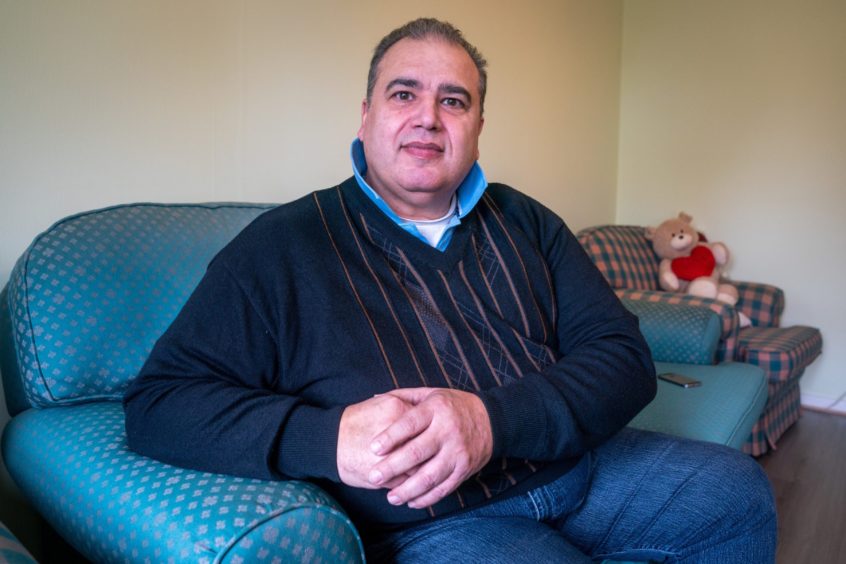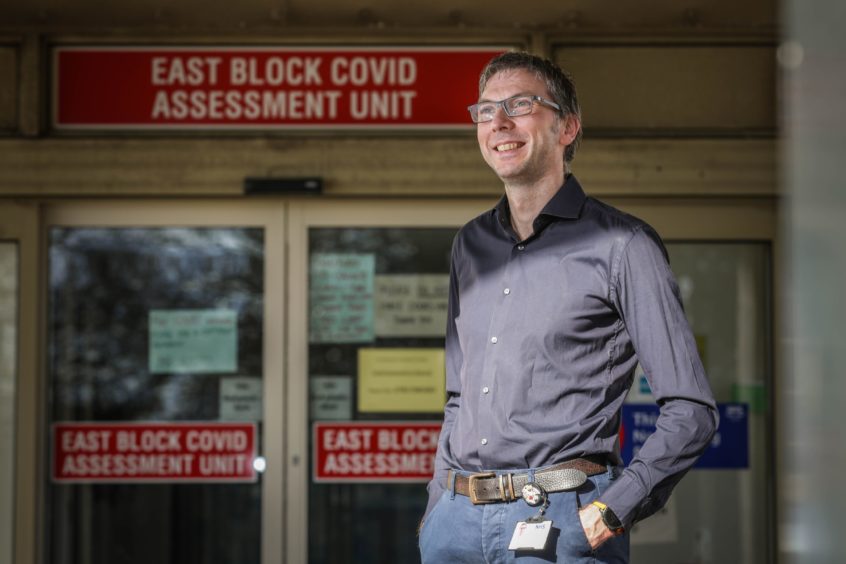It’s now 12 months since the UK’s almost 70 million residents were ordered into the most severe restrictions on liberty ever seen in the country.
Brits watched in shock as Prime Minister Boris Johnson announced on March 23 2020 they must stay at home under lockdown as a deadly virus swept the world.
The day will be marked in various ways across the UK today.
Dundee’s Caird Hall will be lit yellow as part of ‘Day of Reflection’ to show support for those who have lost loved ones.
The UK death toll today sits at 126,172.
But on the anniversary, could we have imagined Covid-19 would have such a huge toll on our lives for such a long period?
Families and friends have been cruelly separated and many have lost loved ones alone in hospitals under restrictions seen as a necessary evil.
Frontline workers have bravely kept the country from falling apart while schools as well as businesses have shut — some now permanently.
The population at large has battled to stay sane while awaiting immunisation to wrest back control.
This has seen mental illness increase as well as loneliness, particularly among vulnerable people shielding and unable to leave home at all for months.
Economy
One of the biggest impacts of the virus has been on the economy and people’s livelihoods, health and wellbeing.
Numerous local businesses from across a wide range of industries have shut during the pandemic.
Among these are Glenrothes electronics firm Micronas, Dewberry Café and Wine Bar in Perth, and Pendé Café in Arbroath.
National firms Debenhams and Thorntons will also close all their stores permanently.
It is feared suicide rates over the past year (which will be published in 2021) may have sky-rocketed while various studies have shown a spike in anxiety and depression.
The stay at home message has also meant people are also less likely to contact health services with mental or physical problems.
This is believed to be at least partly responsible for excess deaths in the UK in 2020 sitting among the highest in Europe.
People struggling fed 127,o00 times in Dundee
The situation has also seen foodbanks across the country struggle to cope with a surge in people unable to afford basic necessities.
The Dundee Food Insecurity Network was set-up in March 2020 by groups which foresaw the situation.
Efforts on the ground are being co-ordinated by Dundee Volunteer and Voluntary Action and Faith in Community Dundee.
Jacky Close, from Faith in Community Dundee, says the huge need for emergency food is “just so wrong”.
We are all in the same storm but we are all on different boats
She said: “One of the best phrases I have heard to sum up the situation is from the Joseph Rowntree Foundation.
“They say during Covid, we are all in the same storm but we are all on different boats.
“I think that really tells it well. Some are in rubber dinghies and some are in cruise ships.”
The network contains 27 projects which, as of the one-year lockdown anniversary today, has collectively supplied emergency food to people 127,000 times in the past year.
Funding has come from a variety of sources, including the Scottish Government food fund which is being managed by the council.
Ms Close added: “All it takes for some to hit crisis point is even a slight change in their circumstances.
“For people already living on a low-income and just managing, it’s tipped them over the edge.
“People furloughed for instance might only be on 80 per cent of their usual salary.
“It could mean suddenly they can’t pay all their bills and they end up in debt.”
Families separated
Millions of families around the world have been separated by lockdown measures as countries shut borders and planes were grounded.
Distance has only been one factor though — many have not been able to see each other despite living in the same area.
DCT Media has reported on various families in such situations including Ian Simpson who lives just five miles from his mum’s care home.
On the other end of the scale, Italian Fife resident Giorgio Cozzolino was separated from his partner by over 1000 miles.
Giorgio and partner Marzia Carrai, who share a home in Anstruther, were divided when Marzia visited Tuscany to see family prior to Italy’s lockdown.
The Mediterranean country was initially one of the worst-hit in Europe and at that time, the threat seemed distant to many in the UK.
Striking images were beamed across the world showing sick patients lying on ward floors as hospitals quickly became overwhelmed.
Giorgio eventually managed to fly to see her when restrictions were eased at Christmas.
But the sudden decision to enter another UK-wide lockdown just a week later left them both unable to return.
He says the experience has been immensely draining for the couple.
He said: “It was very difficult for me to be separated for so long time. We moved to Scotland together and we were always by each other’s side.
“We worked together and we have a strong connection. To live abroad (in Scotland) is not easy and we needed to look after each other.
“I don’t have the words to explain how it felt to see all my parents and the grandchildren in Tuscany. I enjoy any moment that I spend with them.
“But now I again feel lost. I don’t know when I am able to come back and I am worry about what will be in the future.”
Dundee doctor with long Covid continuing work on frontline
Others are still living with symptoms months on from falling ill, a phenomenon known as long Covid.
Ninewells Hospital doctor Tom Fardon fell ill with the virus just weeks after Boris Johnson’s announcement.
Almost a year on and though much better, he continues to suffer some effects.
The 44-year-old, who is a consultant in the respiratory department, says his experience is mirrored by thousands.
He said: “Since September/October, I’ve suffered from daily headaches which don’t really respond to any treatment, as well as tinnitus.
“Both are thought to be a result of Covid-19.
“But in my experience, things are better now than they were six months ago.
“That’s what I try to tell people who have longer-term symptoms.
“Going through it personally helped me a huge amount in helping patients.”
Dr Fardon added he is immensely proud of the country’s resolve over the past year and is urging everyone to maintain one last push before vaccines free the population.
“12 months ago, we had no idea what the future would hold,” he said.
“Everyone in the hospital has adapted and worker harder for longer.
“But perhaps what is more impressive is what the community has done to change the way they live and work to minimise spread of the virus and make sure health services haven’t been overwhelmed.
“My overriding feeling at the moment is gratitude to the population and my colleagues.
“My message now is stick with it. We have done so well and it’s just a couple more months [before the vaccines allow an end to restrictions].
“I have a sense of hope this time next year we will be looking back on a pandemic we’ve moved out of.”
